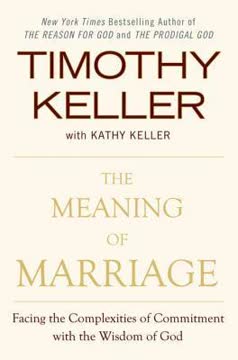Key Takeaways
1. The Trinity is the vibrant source of God's love, not a dull doctrine.
God is love because God is a Trinity.
Trinity explains love. The concept of the Trinity often sounds cold and irrelevant, but the book argues it's the very reason God is love. A solitary God, alone for eternity before creation, would have no one to love and thus couldn't be inherently loving. The Trinity—Father, Son, and Spirit in eternal relationship—means God has always been loving.
Beyond "how-to". Christianity isn't primarily about lifestyle changes; it's about knowing God. Understanding the Trinity allows us to grasp God's overflowing kindness and loveliness, which in turn transforms our desires and behavior. It's not an intellectual game but a path to deeper enjoyment of God.
Not a problem. The Trinity isn't a bizarre, inexplicable problem or a mere "mystery" in the sense of being unknowable. It's a secret God has revealed about Himself. While we can't exhaust our knowledge of God, we can understand the Trinity because God has made Himself known as Father, Son, and Spirit.
2. Before creation, God was eternally a Father delighting in His Son.
“Father,” he says, “you loved me before the creation of the world.”
God's core identity. Jesus reveals God not primarily as Creator or Ruler, but as Father. This is God's most foundational identity. Before anything else existed, God was eternally a Father loving His Son. This means God is inherently outgoing and life-giving, not needing creation to be who He is.
Eternal relationship. The Son is the eternal Son, never a created being. If there was a time the Son didn't exist, God wouldn't have been Father and thus not loving. The Father eternally begets the Son, like light from a lamp, showing God's nature is to shine out and give life.
Love's cascade. The Father's primary love for the Son establishes a pattern of headship and love. As the Father is the loving head of the Son, the Son becomes the loving head of the church, loving her first. This pattern extends to marriage, where husbands are to love their wives as Christ loves the church, freely and unconditionally.
3. Creation is the joyful overflow of God's perfect, shared love.
The fountain of love brimmed over.
Love's motive. Unlike solitary gods who might create out of loneliness or need for servants, the triune God creates from an overflow of His eternal, shared love. The Father's delight in the Son is so great that it spills out to create others to share in that love. Creation is an act of grace, not necessity.
Son as blueprint. Jesus Christ, the Son, is the logic and goal of creation. Created "by him and for him," the universe is the Father's gift to the Son, intended to be inherited by Him. Astonishingly, this inheritance is shared with believers, who become "co-heirs with Christ."
Spirit's beautifying work. While the Father conceives creation and the Son executes it, the Spirit perfects and beautifies it. Described as hovering like a dove in Genesis 1, the Spirit vivifies and brings life. Creativity itself is a gift of the Spirit, making the world alive with beauty and reflecting God's own radiant nature.
4. Salvation is being brought into the Father's love for the Son.
I have made you known to them, and will continue to make you known in order that the love you have for me may be in them and that I myself may be in them.
Sin's core problem. Sin is not merely rule-breaking but a deeper perversion of love. Made in the image of the God of love, we were created to love God and others. Sin is turning inward, loving ourselves and other things more than God, twisting our desires away from Him.
Love's ultimate display. God's response to sin reveals the depth of His love. He sent His eternally beloved Son as an atoning sacrifice. The cross shows God's love is holy, strong, and self-giving. The Father gives His glory exclusively to the Son, and the Son shares that glory and the Father's love with believers.
Sharing divine fellowship. Salvation is more than forgiveness; it's adoption into God's family. Through Christ, our High Priest, we are brought before the Father, receiving the Spirit of sonship. We are loved "even as" the Father loves the Son, sharing their intimate fellowship and having the privilege to call God "Abba."
5. The Spirit shares God's life, transforming and beautifying believers.
Where the Spirit is, there it is always summer,” wrote William Tyndale, for there “there are always good fruits, that is to say, good works.”
Giver of life. The Spirit is the "giver of life," bringing new birth to spiritually dead hearts by giving us new desires for God. He uses Scripture to open our eyes to Christ's beauty, winning our hearts back to Him. This new life is not abstract but a sharing in the Spirit's own life of fellowship with the Father and Son.
Personal presence. The Spirit is not an impersonal force but a person who comes to live in believers. This personal presence allows for intimate communion with the Father and Son. Thinking of the Spirit as a force risks reducing grace to a mere "thing" and undermining the deeply personal nature of salvation and the Christian life.
Beautifying work. The Spirit transforms us by cultivating a taste for Christ, the epitome of beauty. He turns our eyes from self-absorption to Christ-obsession, making us more Godlike. This transformation involves aligning our desires with God's, leading to "wholehearted joy in God through Christ and a delight to do every kind of good."
6. The triune God is uniquely desirable and unlike any other god.
The triunity of God is the secret of His beauty.
Beyond the Ruler. Atheist critiques often target a God conceived primarily as a distant, controlling Ruler, which is indeed undesirable. But the triune God is fundamentally a loving Father, whose rule is fatherly care. This God, characterized by love, radiance, and joy, is inherently beautiful and desirable.
Mercy's source. Attributes like mercy are central to the triune God because love of the other is central to His being. A single-person God, eternally alone, would lack this inherent inclination towards mercy. The triune God's mercy is the overflow of His eternal love into fallen time.
Avoiding idols. Without the Trinity, our minds tend to create idols, distorting God into something less lovely or even devilish. Speaking of a generic "God" risks applying horrifying characteristics (like loveless constancy or frightful power) to the wrong being. The Trinity defines and brightens every attribute of God.
7. God's attributes are redefined and brightened by His triune nature.
Holiness is a most beautiful, lovely thing.
Holiness as beauty. Holiness isn't a cold, unloving aspect of God that separates Him from us in a prissy way. It's the perfection and purity of the love between the Father and the Son. God is "set apart" from us not by aloofness, but by the absence of the ugly, selfish traits found in us.
Wrath from love. God's wrath isn't arbitrary rage but His necessary response to evil, stemming from His love. Just as a loving parent hates what harms their child, God's love for His Son, His children, and His creation compels Him to oppose sin and evil. His wrath is proof of His sincere, potent love.
Glory as worth. God's glory isn't a craving for applause but His inherent worth and what makes Him Himself. Giving God glory means recognizing and celebrating who He is—the Father, Son, and Spirit in perfect, overflowing love. His majesty is not distant but displayed in His loving actions, like stooping down to lift the needy.
8. The Trinity is the foundation for human harmony, relationship, and mission.
From harmony, from Heav’nly harmony This universal frame began.
Harmony in diversity. The eternal harmony of the Father, Son, and Spirit provides the logic for a world where distinct beings can exist in unity. Created in God's image, humans are made for relationship and fellowship, reflecting the divine community. This contrasts with monistic views where ultimate reality is sameness, not unity in diversity.
New family. Sin broke human relationships, but the Son reconciles us not only to God but to each other, creating a new family. The Spirit unites diverse people (male/female, Jew/Gentile) into one body, enabling them to cry "Abba" together and love one another. This unity in diversity reflects the triune God.
Outgoing mission. The Christian life is one of sharing God's outgoing nature. Just as the Father sent the Son and the Spirit, Jesus sends His disciples. Mission flows from the overflow of love and delight in the divine fellowship, not from obligation. The Spirit empowers believers to share this joy, making them fruitful and life-giving like their God.
Last updated:
FAQ
What’s "Delighting in the Trinity" by Michael Reeves about?
- Exploring the Trinity’s Centrality: The book introduces the Christian doctrine of the Trinity, arguing that understanding God as Father, Son, and Holy Spirit is essential to the Christian faith.
- Trinity as the Heart of Christianity: Reeves contends that the triune nature of God is not an abstract or irrelevant doctrine but the very foundation of Christian belief, shaping everything from creation to salvation and daily life.
- Accessible and Enjoyable Theology: The author aims to make the Trinity approachable, showing how it is the source of all joy, love, and beauty in Christianity.
- Correcting Misconceptions: The book addresses common misunderstandings and illustrations of the Trinity, emphasizing its scriptural basis and practical relevance.
Why should I read "Delighting in the Trinity" by Michael Reeves?
- Deepens Understanding of God: The book helps readers move beyond vague or impersonal ideas of God to a vibrant, relational understanding rooted in the Trinity.
- Transforms Christian Living: Reeves shows how knowing the triune God leads to assurance, joy, and practical transformation in relationships, church life, and personal holiness.
- Engages Common Objections: The book tackles why the Trinity matters, addressing both Christian and non-Christian doubts about its relevance and coherence.
- Invites Enjoyment, Not Just Knowledge: Reeves encourages readers to not just learn about God, but to delight in Him, making theology a source of joy rather than dry study.
What are the key takeaways from "Delighting in the Trinity" by Michael Reeves?
- God Is Love Because He Is Trinity: The triune nature of God is the reason He is eternally loving, as the Father has always loved the Son in the Spirit.
- Trinity Shapes All Christian Belief: Every aspect of the gospel—creation, salvation, and the Christian life—flows from the triune character of God.
- Practical Impact: Understanding the Trinity changes how Christians pray, relate to others, and view the world, leading to deeper assurance and joy.
- Rejects Abstract or Distant God: The book argues that a non-triune God would be lonely, self-centered, and ultimately unloving, making the Trinity essential for a truly good and beautiful God.
How does Michael Reeves define the Trinity in "Delighting in the Trinity"?
- Three Distinct Persons: God is one being in three persons—Father, Son, and Holy Spirit—each fully and equally God, yet distinct in their relationships.
- Eternal Relationships: The Father eternally loves the Son, the Son eternally responds to the Father, and the Spirit is the bond of their love.
- Not Modalism or Polytheism: Reeves rejects the idea that God is one person with three modes (modalism) or three separate gods (polytheism), emphasizing the unity and distinction within the Trinity.
- Scriptural Foundation: The book grounds its definition in the Bible, showing that the Trinity is not a later invention but the God revealed by Jesus.
Why does Michael Reeves argue that the Trinity is essential to Christianity?
- Foundation of Christian Faith: Reeves claims that the identity of God as Trinity is what makes Christianity unique and is the bedrock of all Christian doctrine.
- Source of Salvation and Relationship: Only a triune God can offer true salvation—bringing believers into the loving fellowship of Father, Son, and Spirit.
- Shapes the Gospel: Without the Trinity, doctrines like salvation by grace, the incarnation, and adoption as God’s children lose their meaning.
- Distinguishes Christianity from Other Faiths: The Trinity sets Christianity apart from monotheistic religions like Islam and Judaism, which do not see God as eternally relational.
How does "Delighting in the Trinity" by Michael Reeves explain what God was doing before creation?
- Eternal Father Loving the Son: Before creation, God was not lonely or inactive; the Father was eternally loving the Son in the fellowship of the Spirit.
- God’s Identity as Father: Reeves emphasizes that God’s primary identity is as Father, not just Creator or Ruler, and this shapes everything He does.
- Creation as Overflow of Love: The act of creation is seen as the natural outpouring of God’s eternal love, not a response to loneliness or need.
- Contrast with Other Gods: Single-person gods would be self-centered and only become loving after creating others, but the triune God is love from eternity.
What does Michael Reeves say about creation in "Delighting in the Trinity"?
- Creation as an Act of Love: The universe exists because the Father’s love for the Son overflowed, not because God needed servants or was lonely.
- Trinitarian Involvement: The Father creates through the Son (the Word) and by the Spirit, each person of the Trinity playing a distinct role.
- Affirmation of Goodness: The triune God delights in having others beside Him, so creation is declared “good” and is meant to reflect God’s relational nature.
- Contrast with Other Worldviews: Reeves contrasts the Christian view with pagan, Islamic, and Gnostic ideas, showing how only the Trinity makes sense of a good, relational, and beautiful creation.
How does "Delighting in the Trinity" by Michael Reeves describe the problem of sin and the need for salvation?
- Sin as Twisted Love: Sin is not just rule-breaking but a turning of our love away from God to ourselves and other things.
- Loss of Relationship: The fall is described as humanity rejecting the loving fellowship with God for self-centeredness, leading to spiritual death.
- Deeper Than Behavior: Reeves argues that the root problem is not just actions but desires and affections that have turned inward.
- Trinitarian Solution: Only the triune God can restore us to true relationship, sharing His own love and life with us through the Son and Spirit.
What is unique about salvation according to "Delighting in the Trinity" by Michael Reeves?
- Sharing the Son’s Relationship: Salvation is not just forgiveness but being brought into the same loving relationship the Son has with the Father.
- Adoption as Children: Believers are adopted as God’s children, loved as the Son is loved, and given the Spirit to enjoy this relationship.
- Christ as High Priest: Jesus, the Son, becomes our representative, bringing us before the Father and sharing His inheritance with us.
- Assurance and Joy: The triune nature of salvation gives Christians deep assurance, security, and joy, far beyond mere legal pardon.
How does "Delighting in the Trinity" by Michael Reeves explain the role of the Holy Spirit in the Christian life?
- Spirit as Giver of Life: The Spirit gives new birth, opening hearts to know and love God, and is the ongoing source of spiritual life.
- Personal Presence: The Spirit is not an impersonal force but God Himself, coming to dwell in believers and unite them to Christ.
- Transformation and Beauty: The Spirit beautifies believers, making them more like Christ and enabling them to love God and others.
- Empowering Mission and Fellowship: The Spirit draws Christians into the family of God and sends them out to share God’s love with the world.
What are the practical implications of the Trinity for daily Christian living, according to Michael Reeves?
- Shapes Prayer and Worship: Christians pray to the Father, through the Son, by the Spirit, entering into the fellowship of the Trinity.
- Transforms Relationships: Understanding the Trinity leads to more loving marriages, church communities, and interactions with others.
- Motivates Mission: The outgoing love of the triune God inspires believers to share the gospel, not out of duty but from delight.
- Fuels Assurance and Joy: Knowing God as Father, Son, and Spirit gives deep security, comfort, and a sense of belonging.
What are the best quotes from "Delighting in the Trinity" by Michael Reeves and what do they mean?
- “God is love because God is a Trinity.” This quote encapsulates the book’s main thesis: only a triune God can be eternally loving.
- “The Trinity is the cockpit of all Christian thinking.” Reeves means that the Trinity is not a side issue but the control center of Christian belief.
- “The triune being of God is the vital oxygen of Christian life and joy.” The Trinity is not just doctrine but the source of all spiritual vitality and happiness.
- “If we try to think about God without thinking about the Father, Son and Spirit, then only the bare and empty name of God flits about in our brains, to the exclusion of the true God.” This quote (from Calvin, cited by Reeves) warns that abstract ideas of God are empty without the Trinity.
- “The Father so enjoyed his fellowship with his Son that he wanted to have the goodness of it spread out and communicated or shared with others.” This highlights the book’s vision of creation and salvation as the overflow of God’s eternal love.
Review Summary
Delighting in the Trinity receives overwhelmingly positive reviews, with readers praising its clarity, depth, and ability to make the complex doctrine of the Trinity accessible and inspiring. Many describe it as transformative, helping them understand and appreciate God's triune nature in new ways. Readers highlight Reeves' engaging writing style, use of Scripture and church history, and his success in demonstrating the Trinity's central importance to Christian faith. The book is frequently recommended for both new and experienced Christians, with many expressing a desire to reread it.
Similar Books
Download PDF
Download EPUB
.epub digital book format is ideal for reading ebooks on phones, tablets, and e-readers.









